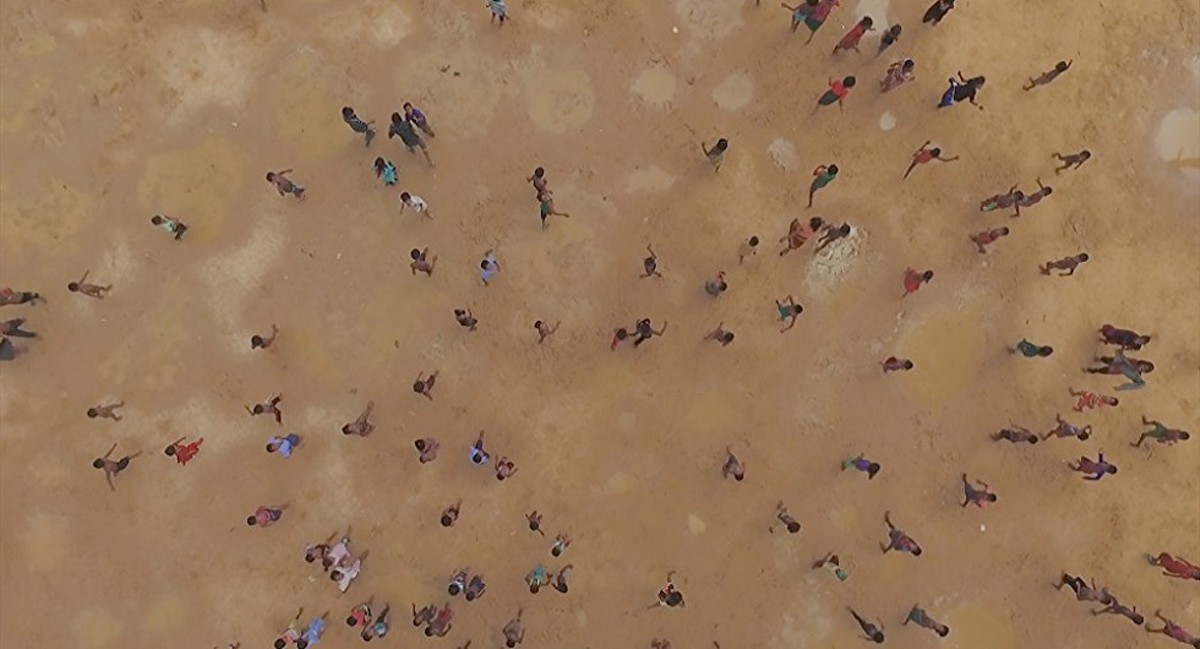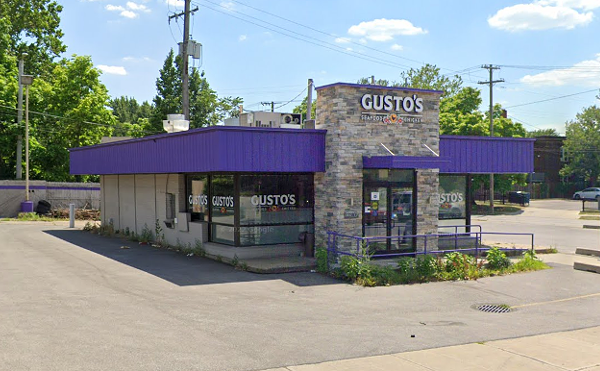Chinese activist and filmmaker Ai Weiwei's sprawling new documentary shines a bright light on one of the most dire human events on the planet right now: the refugee crisis that has funneled millions of people out of war, oppression and climatic danger in countries like Syria, Myanmar and Afghanistan. Their destination? On one hand, these populations are seeking asylum in places like Germany; on the other hand, it's profoundly complicated and always in flux. Tragedy is the sole constant.
The scope of Weiwei's portrayal is remarkable, transcending the Western headlines that crawl across transitional scenes. You might remember this one: "Migrant chaos mounts while divided Europe stumbles for response." That's Sept. 3, 2015, in the New York Times, and it works handily as a foundational thesis for Human Flow.
The film opens Friday at the Cedar Lee Theatre. (Cleveland Cinemas has partnered with the Migration and Refugee Services of the Catholic Charities' Cleveland Diocese for an audience discussion following the 4 p.m. showing on Oct. 28.)
Throughout the film, we rarely spend more than a few minutes on any individual person or family. Rather, Weiwei alternates between close-up shots -- brief exchanges of anguished looks while a group plans how to ford a river in northern Greece -- and expansive sweeps across a countryside, hundreds of refugees wending inland across long, lonely roads.
We hear about the murder of Rohingya Muslims in Myanmar and we hear about itinerant bombing in Jobar (a municipality in war-torn Damascus), but the filmmaker doesn't linger. The sheer magnitude of this crisis, unseen since World War II: That is the story here.
In times of great human strife, where is everyone supposed to go? How are the rest of us supposed to respond? What's the moral responsibility? Throughout the artistic inquiry, Weiwei is omnipresent. He walks alongside long lines of men, women and children, filming their progress through the lens of his phone and frequently interacting with them: questions, jokes, laughter.
Behind those fleeting moments, the global problem grows ever more dire.
In Jordan, border security agents describe the influx of refugees through sanctioned entry points and through unofficial crossings. In all, that country is facing a population increase of 1.4 million refugees. The agent compares that to 60 million new refugees in the U.S., a global superpower that has capped its 2018 refugee limit at an historic low of 45,000. With more border walls than the world has seen since the fall of the Berlin Wall in 1989, the ramifications of the worsening refugee crisis grow deeper. This is where the immediate impact of Weiwei's work is laid bare. There is no rational excuse not to see this film.










